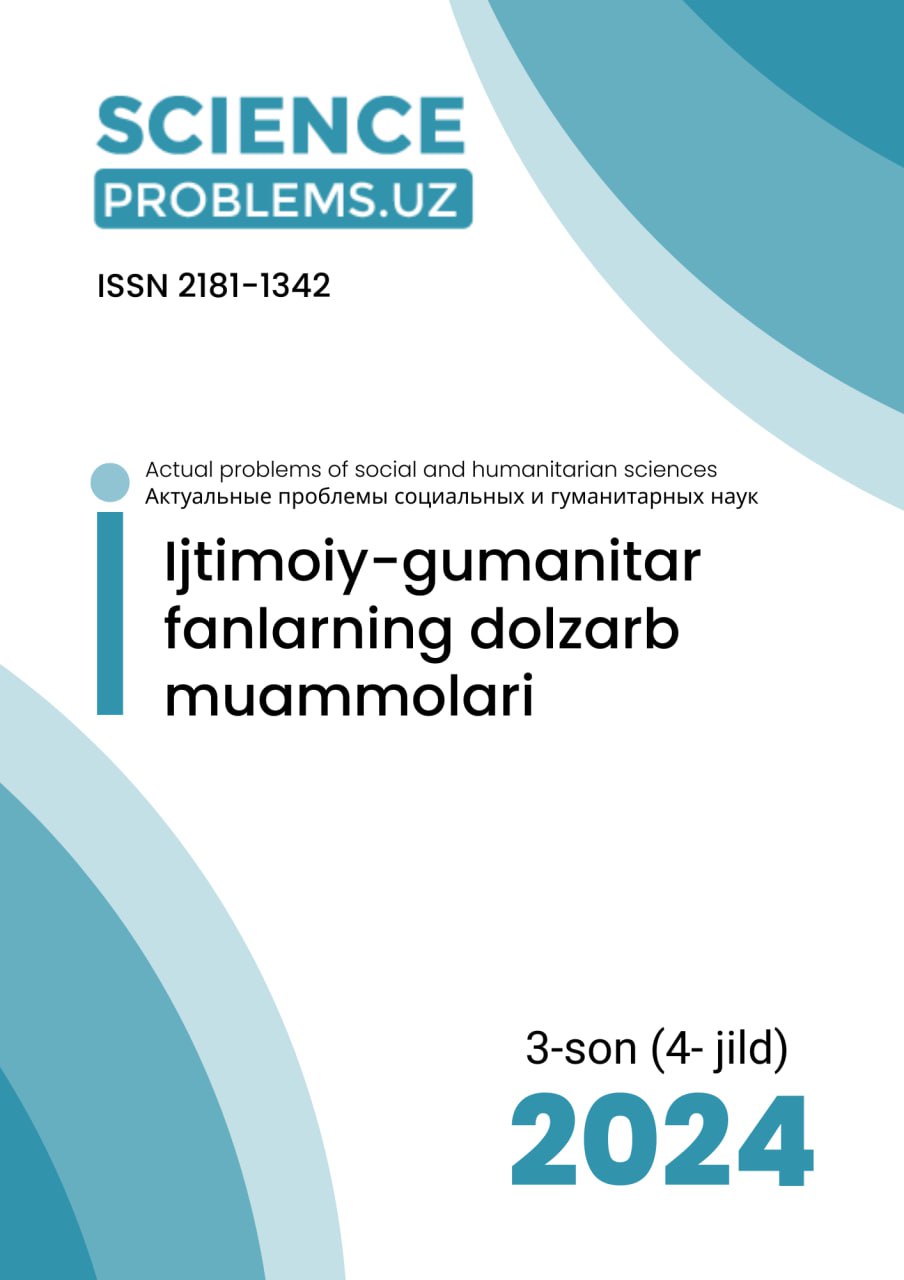LITERARY WORKS AS THE MOST IMPORTANT AND WELL-ACCLAIMED COMPONENTS OF THE CULTURAL HERITAGE OF THE NATION
Kalit so'zlar
https://doi.org/10.47390/SPR1342V4I3Y2024N50Kalit so'zlar
Literary work, folklore, tradition, cultural heritage, esthetic dimension, expressive dimension, stylistic dimension.Annotasiya
This article delves into the multifaceted realm of literary work, emphasizing its traditional, oral, and communal nature. It explores the diverse components of folklore encompassing beliefs, customs, expressions, and practices shared within various cultural groups. The piece highlights the dynamic nature of folklore, which evolves through repetition, variation, and adaptation while retaining significance and continuity for the collective identity of communities. Through the lens of various folklorists' perspectives, it challenges stereotypes and misconceptions about folklore, portraying it as a living, integral aspect of contemporary life across different cultural landscapes. The article underscores the significance of folklore in preserving cultural heritage, fostering collective identity, and illuminating the universal human experience.
Manbalar
Dan Ben-Amos. Toward a Definition of Folklore in Context, in Américo Paredes and Richard Bauman, eds. Toward New Perspectives in Folklore. Austin: University of Texas Press for the American Folklore Society, 1972.
Jan Brunvand. The Study of American Folklore: An Introduction, 2nd edition. New York: W.W. Norton, 1978.
Edward D. Ives. Joe Scott, the Woodsman-Songmaker. Urbana: University of Illinois Press, 1978.
Barre Toelken. The Dynamics of Folklore. Boston: Houghton Mifflin, 1979. – C 45-52
Edwards J., Multilingualism. London: Routledge, 1994. – P. 17-20
Steve Zeitlin, A Celebration of American Family Folklore, Cambridge, MA: Yellow Moon Press, 1982. – P 10-13.








